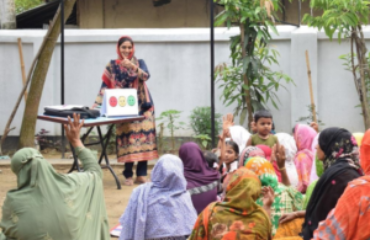
Background: Community engagement (CE) interventions often explore and promote behaviour change around a specific challenge. Suggestions for behaviour change should be co-produced in partnership with the community. To facilitate this, it is essential that the intervention includes key content that unpacks the challenge of interest via multiple sources of knowledge. However, where community lived experience and academic evidence appear misaligned, tensions can appear within the co-production dynamic of CE. This is specifically so within the context of antimicrobial resistance (AMR) where ideal behaviours are often superseded by what is practical or possible in a particular community context.
Methods: Here we describe a framework for the equitable development of contextually appropriate, clearly evidenced behavioural objectives for CE interventions. This framework explores different sources of knowledge on AMR, including the potentially competing views of different stakeholders.
Findings: The framework allows key content on AMR to be selected based upon academic evidence, contextual appropriateness and fit to the chosen CE approach. A case study of the framework in action exemplifies how the framework is applicable to a range of contexts, CE approaches and One Health topics beyond just AMR.
Conclusion: Within CE interventions, academic evidence is crucial to develop well-informed key content. However, this formative work should also involve community members, ensuring that their contextual knowledge is valued. The type of CE approach also needs careful consideration because methodological constraints may limit the breadth and depth of information that can be delivered within an intervention, and thus the scope of key content.


